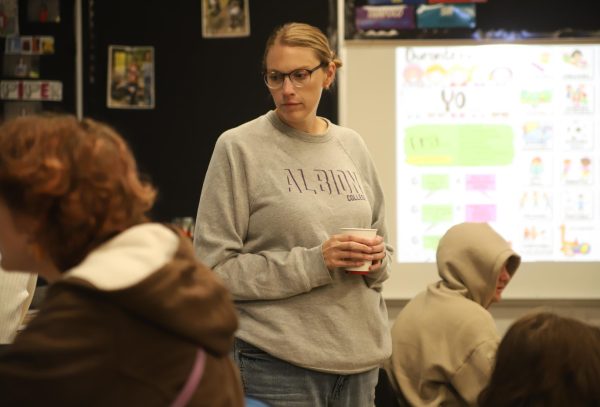More than an Addiction
Photo courtesy Zoe Lubetkin
All names with the symbol * have been changed to protect the anonymous sources
“I had been caught, my coach and parents sat in the room in silence before opening their mouths to criticize me,” remembered Peter Smith*. “They told me that I would have two options: to quit vaping and possibly stay on the team or to continue using my vape and be disqualified from participating on the team. I had said I would quit — I had even given them my Juul — but within a week, I had obtained another and was vaping again, making sure to be more careful than before.”
Vaping has become a national phenomenon that is as integrated into high school as pencil sharpeners. One study conducted by the National Institute of Drug Abuse showed that 9.5 percent of eighth graders, 14 percent of 10th graders, and 16.2 percent of 12th had used a vaping device in the past month. As these numbers grow, a new generation of nicotine users could be emerging.
“Electronic cigarettes are both a blessing and a curse in my opinion,” said Tony Johnson* a previous user of nicotine products. “While they have been shown to really help people that have been addicted to conventional cigarettes, at the same time they have caused high schoolers, and even some middle schoolers, to begin using them. When I’ve talked to most of them they mainly say it’s because it’s a vapor, not a smoke, so vapes can’t be bad for them, while this just is not true. The medical research on vaping has not been researched for a long enough time that scientists know what the medical repercussions of vaping could bring.”
So with repercussions anywhere between a dry mouth to popcorn lung — a scarring of tiny air sacs in the lungs — to even damaging blood vessels, it’s astounding that teens would willingly put themselves at such a risk. “Lots of people I know started to vape just to do the cool tricks we saw other people do,” Bruce Miller*, a high school senior, said. “We started out with using a juice that had no nicotine in it because we were worried about becoming addicted to it. Back then, I used to use it maybe once a week, whereas now I use three to four times a week. Some people use it every couple of hours a day, using a higher concentration as well.”
“Sure, I knew it was bad for me, but I didn’t want to be left out of group activities just because I don’t vape,” Smith* said. “So I was willing to risk everything just so that I could stay with the friends I’ve had for years.”
Because electronic cigarettes have only been around for 10 years, very little is known about the long-term effects of vaping Scientists have discovered some of the short-term effects and know that the effects that people experience when coming off of an addiction to any nicotine product are similar to those of normal cigarettes. However, the long-term effects of using propylene glycol are less clear. Yet, evidence suggests that they could produce irritants which could lead to lung problems further down the line.
In addition, it’s easier now than ever before to acquire these nicotine products. “Because there are a lot of shops that don’t check your ID in the Ypsilanti area, people go there or they or get someone that’s older to go in for them,” Miller* admitted. “Also, there are websites where it’s really easy to get products online because it avoids that human interaction as well as the only identification before entering is a question asking if you’re an adult.”
“It’s so easy for people our age to get into vaping, especially when they can do it in the middle of class,” Johnson said. “People will have it tucked up in their sleeve, or attached to their collar where they can just hit it in the middle of class, then zero it out so it looks like nothing is there.”
As vaping continues to grow in popularity throughout school districts around the country, the risks associated with vaping must be remembered. “Don’t do it. If you want to try it when you’re older, that’s fine it’s your own decision,” Johnson continued. “You’re only going to do it now though because you want the social interactions that come with it, and trust me, your health isn’t worth ‘fitting in’ for.”

Atticus Dewey is a senior at Community High School and is more than excited to start his fourth year on The Communicator staff. This year, he is one of the four Print Editors-in-Chief, but believes that the entirety of the staff is more skilled than any other year prior.
His life outside of journalism is completely absorbed by one thing: water polo. While Atticus doesn't have any free-time because of it, he wouldn't have it any other way. While Atticus has felt stressed and like time has been flying by, he's grateful that he has three other wonderful editors to help him through the process.








